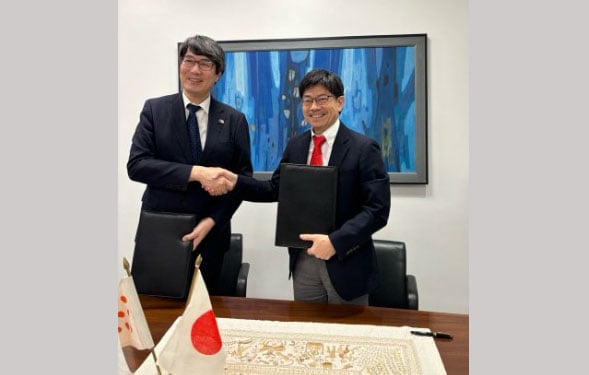
DHAKA, Oct 22, 2024 (BSS) - The United Nations Population Fund (UNFPA) and Japan government today signed a groundbreaking partnership deal to empower Rohingya women and girls as well as the surrounding host communities in Bangladesh.
Under the agreement, Japan will provide 3.3 million US dollars to support UNFPA's efforts to improve livelihoods of the Rohingyas women and girl and the host community, said a press release here.
"I hope that this assistance will contribute to the protection of women and girls, their dignity, and improvement of their quality of life," Japanese Ambassador Iwama Kiminori said during a signing ceremony on the partnership held the Japan embassy here.
With the generous support of Japan, UNFPA Bangladesh representative Masaki Watabe said that his organization will be able to work with Bangladesh government to scale up women health service and strengthen linkages between key health facilities in Cox's Bazar and Noakhali districts.
The fund will help UNFPA to implement its project titled "Advancing the Women, Peace and Security Agenda for Displaced Persons from Myanmar and Host Communities in Cox's Bazar and Noakhali Districts".
It consists of three main components, each addressing the most essential needs of Rohingya women and adolescent girls in Cox's Bazar and Bhasan Char, as well as the affected host communities in Noakhali and Cox's Bazar districts in Bangladesh.
The project's primary focus is on addressing sexual and reproductive health (SRH) needs, aiming to create a demand for services while building the capacities for sustainable and robust health services.
The second component addresses Gender Based Violence (GBV) against women and girls - and focuses on facilitating access to life-saving protection services through Women Friendly Spaces (WFS) and Women-Led Community Centers (WLCC), as well as Women Affairs Offices and Women Help Desks in Police stations.
The third component specifically targets adolescents and youth vulnerable to child marriage, adolescent pregnancy and exclusion from humanitarian aid.
Since August 2017, Japan has been a steady supporter of the Rohingya response in Bangladesh, contributing over 220 million US dollars to UN agencies as well as NGOs in Bangladesh, including through this new funding.
The Rohingya humanitarian crisis has been a protracted protection crisis lasting over seven years, significantly impacting the lives, security and well-being of both the displaced people and host communities.